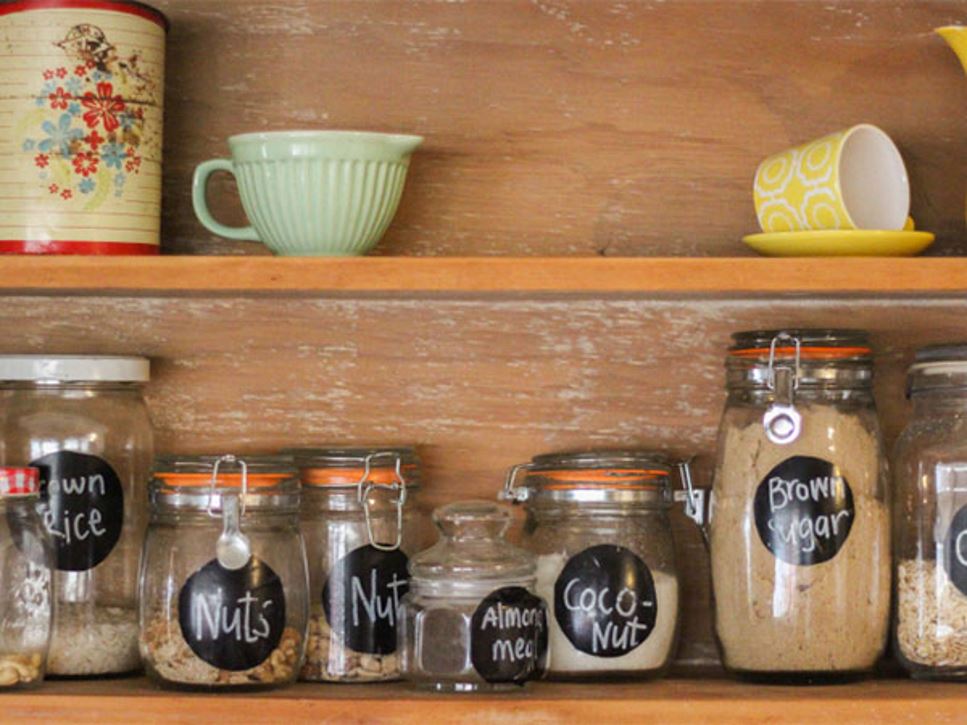When stored properly, some foods can remain safe and keep their quality for an extended period. Store food in the right container, at the right temperature and for the right length of time. Proper food storage will reduce your risk of food poisoning and also help your money go further since your food won't spoil as quickly.
The cupboard is a great place to store your shelf-stable foods, from dry pasta to cookies.
Here are some tips on proper food storage in the cupboard:
- Keep your cupboards and pantry clean, dry, dark and cool — preferably away from any heat-producing appliances. A cool temperature range, between 50°F to 70°F, helps keep foods at their best longer. When foods are stored at warmer temperatures (above 100°F) it tends to lower the quality of many foods, especially canned goods.
- Organize your cupboards by placing older containers in front to use first. Canned foods have a long shelf life and, if stored properly, many unopened canned foods stay safe to use past their quality date on the can. For highly acidic foods, such as tomatoes and fruit, they may keep for as long as 12 to 18 months and less acidic foods, such as canned meats and vegetables, may last for two to five years.
- Be alert for food spoilage and discard cans that are cracked, bulging, leaking or that spurt liquid when opened.
- Most unopened dried fruits and vegetables can be stored in the pantry for six months to a year. After opening, use within one to three months or transfer to the fridge for a longer shelf life. For more information on how long foods last, check the FoodKeeper App.
- After opening packages of dry foods, such as rice and pasta, store them in dry, airtight containers. This will help keep out insects and rodents and help prevent food from absorbing odors and moisture.
- Store foods away from kitchen chemicals and household trash.
References
Find a Nutrition Expert
Looking for credible nutrition information and recommendations? The Academy of Nutrition and Dietetics' network of credentialed food and nutrition practitioners are ready to help!

